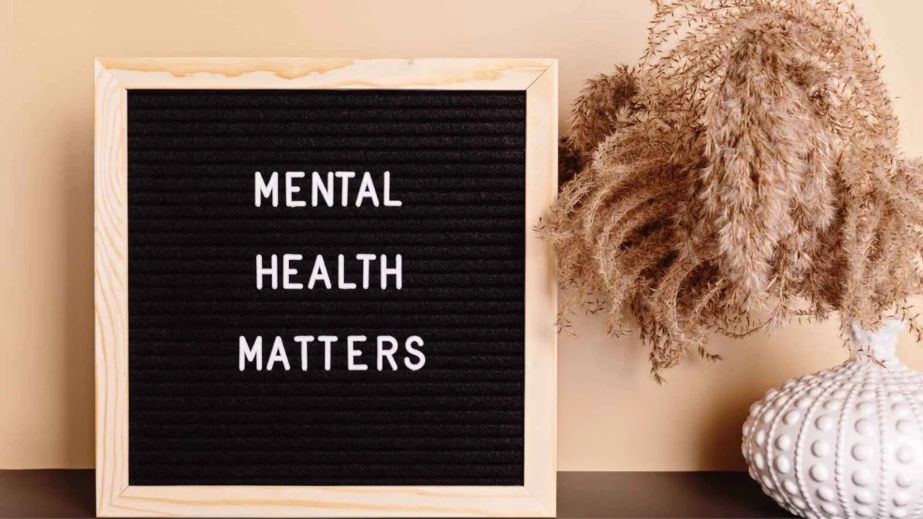
The Importance of Staying Organized for Your Mental Health
A lot of attention is given to mental health, but not enough is paid to what affects it. For example, even though it’s a mistake, it’s easy to overlook the importance of staying organized for your mental health. So, we’ll cover this subject ourselves!
The connection between chaos and mental health
Living within a tight space can lead to clutter and disarray, exacerbating stress and anxiety. Maintaining an organized environment becomes challenging when space is limited, and this chaos can spill into one’s mental state. A cluttered living space can make relaxing, focusing, and unwinding after a busy day significantly harder. Also, the constant sensory overload of a crowded urban environment combined with a disorderly home can contribute to feeling overwhelmed.
The connection between chaos and mental health is particularly pronounced in cramped studio apartment living situations, often unavoidable in larger cities like NYC. So, to mitigate this chaos-mental health link, staying organized for your mental health becomes essential. This can help create a calmer and more serene living space, ultimately supporting better mental well-being.

Benefits of physical organization
The benefits of physical organization extend beyond just tidiness since they have a profound impact on our well-being. For instance, decluttering a Manhattan condo before relocation does not just help you downsize before your move. It also enables you to calm down and better regulate your mood! A well-organized space allows for better relaxation, reduces stress, and promotes a tranquil atmosphere.
What’s more, when our surroundings are clutter-free, we can think more clearly, make decisions more easily, and find things we need, thereby enhancing overall efficiency and productivity! And as a cherry on top, an organized living environment can even affect our physical health. How, you may ask? Well, by encouraging better habits and reducing the risk of accidents.
Time management and mental health
Effective time management is closely linked to maintaining good mental health. When we manage our time wisely, we reduce the stress and anxiety that often accompany procrastination and disorganization. Setting clear priorities, breaking tasks into manageable chunks, and adhering to schedules also help establish control. One that helps us avoid the overwhelming feeling of being constantly rushed or behind something. Proper time management also allows us to allocate time for self-care, relaxation, and pursuing activities that bring joy and fulfillment. It even enhances our ability to focus on tasks, reducing distractions that may lead to frustration and increased stress levels.

Mental clarity and focus
Mental clarity and focus are pivotal in navigating the streets of urban environments like Manhattan. When you cultivate mental clarity through organization and mindfulness, you sharpen your ability to concentrate on tasks, make decisions, and manage the constant demands of city life.
This clarity lets you filter out distractions and stay on track, ultimately boosting productivity. It also contributes to a heightened sense of control and confidence in your abilities, reducing stress and anxiety in high-pressure city settings and equipping you to handle the challenges and seize the opportunities that present themselves.
Goal setting and achievement
Setting and achieving goals is like charting a course for personal growth and success. Establishing SMART (Specific, Measurable, Achievable, Relevant, Time-bound) goals creates a roadmap that keeps you focused and motivated. These goals serve as milestones, helping you measure progress and celebrate achievements. They provide direction and purpose, increasing your sense of self-worth and fulfillment!
Furthermore, setting clear goals also enhances decision-making, as you prioritize actions that align with your objectives. Finally, the process of pursuing and achieving these can be a source of joy and self-discovery. So, whether your goals are related to career, relationships, health, or personal development, they serve as a compass that guides you toward a more purposeful and satisfying life.
Work-life balance
Maintaining a healthy work-life balance is essential, especially in lively cities like NYC. Otherwise, the fast-paced urban lifestyle can quickly wear you down. Achieving equilibrium between your professional and personal life allows you to recharge, thus directly helping you reduce stress and prevent burnout.
It enables you to invest time in activities that nourish your well-being, whether that’s spending time with loved ones, pursuing hobbies, or simply relaxing! A balanced life also enhances your productivity and your overall happiness. And lastly, it’s crucial for building resilience and long-term career success, as overworking can lead to diminished performance and reduced job satisfaction.
Emotional regulation
Emotional regulation is a powerful skill that can significantly impact your well-being. Believe it or not, organizing your environment, like properly arranging your wardrobe, can aid this process. Why? Well, a neat space can create a sense of order and control, which can help you navigate through messy feelings more effectively!
Additionally, practicing mindfulness and self-awareness can lead to better emotional regulation by allowing you to recognize triggers and choose how to respond. Furthermore, knowing how to form healthy coping mechanisms and seek support when needed are essential to emotional regulation. When you master doing so, you gain the ability to maintain emotional balance, reduce stress, and build resilience in the face of life’s challenges.

Relationships and communication
Healthy relationships can significantly improve your wellness. After all, building strong, positive connections with others is a cornerstone of mental and emotional well-being. Open and honest communication is the foundation of these relationships and gives you a chance to express your thoughts, feelings, and needs while also listening actively. Another great thing about effective communication is that it enhances your ability to resolve conflicts, fostering a harmonious environment in both personal and professional settings. Therefore, improving how you communicate isn’t only beneficial for your social life. It also plays a vital role in maintaining your psychological well-being.
Working on bettering yourself, your environment, and your mental health
With our guide on staying organized for your mental health, we hope you’ll soon be doing better! Of course, this is not a one-time, over-and-done-with fix. It requires continuous effort and commitment. One that, however, is definitely worth the hassle!

